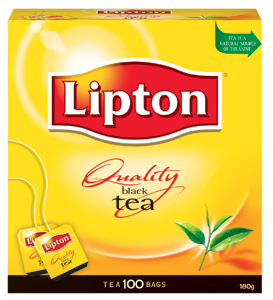
A Greenpeace investigation
has found that Lipton, the world’s best-selling tea brand, sold tea
bags to Chinese consumers that violated Chinese laws and failed European
Union (EU) safety standards.
In March 2012, Greenpeace randomly purchased several boxes of Lipton
tea bags produced and sold in China at two Beijing stores. The samples,
which included green tea, oolong tea, jasmine tea and black tea, were
then sent to an independent third-party lab for pesticide residue
testing.
“This was a random selection of Lipton products from the Chinese
market, and the results were scary. It also puts a big question mark
over the safety of Lipton products in other markets,” said Wang Jing,
Greenpeace food and agriculture campaigner.
The testing found that all four Lipton samples contained pesticides
that exceeded the EU’s maximum levels of residue, while three samples
contained pesticides unapproved by the EU, such as Bifenthrin, which
scientists say could negatively affect male hormone production.














